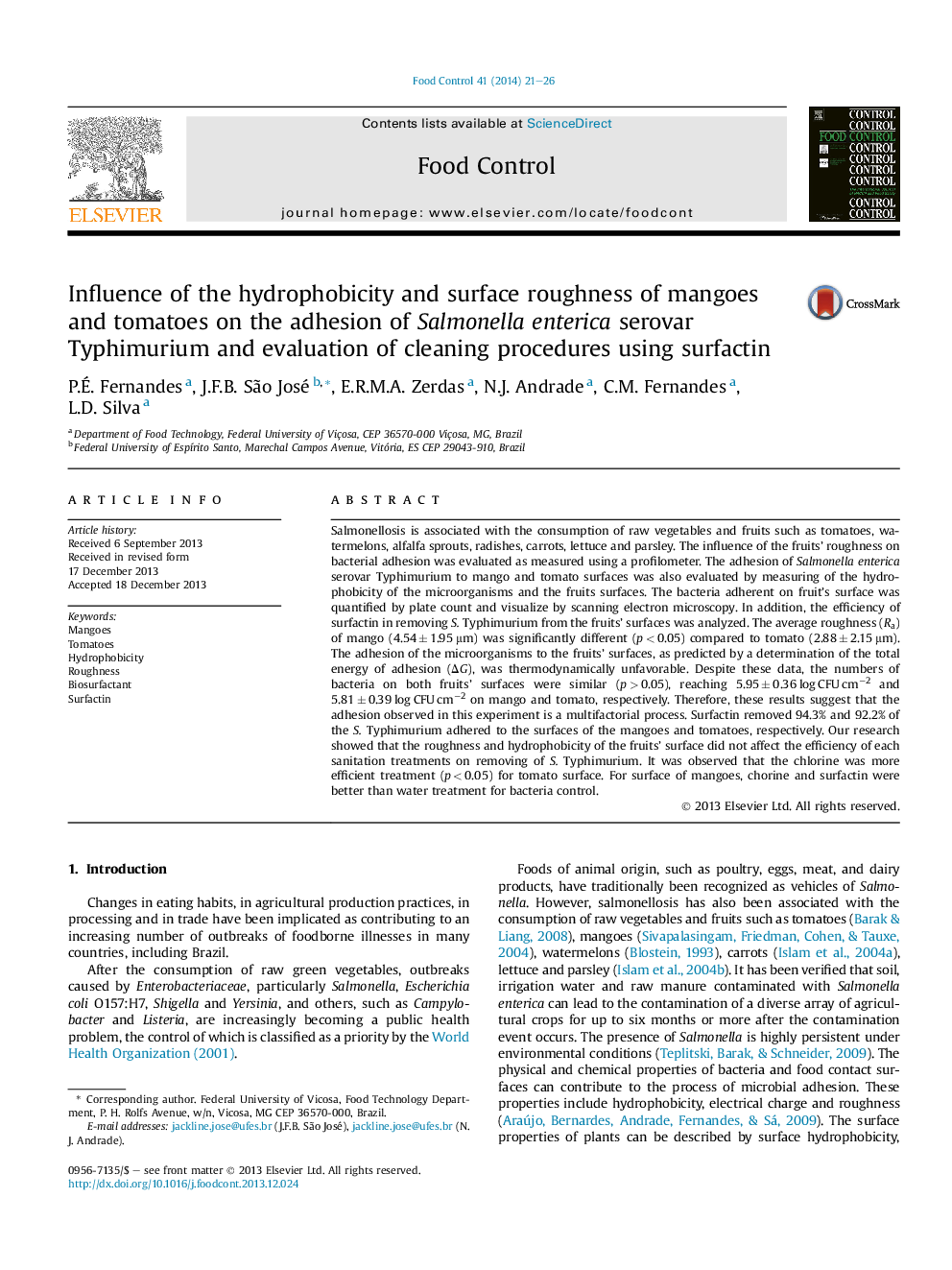| Article ID | Journal | Published Year | Pages | File Type |
|---|---|---|---|---|
| 6391909 | Food Control | 2014 | 6 Pages |
Abstract
Salmonellosis is associated with the consumption of raw vegetables and fruits such as tomatoes, watermelons, alfalfa sprouts, radishes, carrots, lettuce and parsley. The influence of the fruits' roughness on bacterial adhesion was evaluated as measured using a profilometer. The adhesion of Salmonella enterica serovar Typhimurium to mango and tomato surfaces was also evaluated by measuring of the hydrophobicity of the microorganisms and the fruits surfaces. The bacteria adherent on fruit's surface was quantified by plate count and visualize by scanning electron microscopy. In addition, the efficiency of surfactin in removing S. Typhimurium from the fruits' surfaces was analyzed. The average roughness (Ra) of mango (4.54 ± 1.95 μm) was significantly different (p < 0.05) compared to tomato (2.88 ± 2.15 μm). The adhesion of the microorganisms to the fruits' surfaces, as predicted by a determination of the total energy of adhesion (ÎG), was thermodynamically unfavorable. Despite these data, the numbers of bacteria on both fruits' surfaces were similar (p > 0.05), reaching 5.95 ± 0.36 log CFU cmâ2 and 5.81 ± 0.39 log CFU cmâ2 on mango and tomato, respectively. Therefore, these results suggest that the adhesion observed in this experiment is a multifactorial process. Surfactin removed 94.3% and 92.2% of the S. Typhimurium adhered to the surfaces of the mangoes and tomatoes, respectively. Our research showed that the roughness and hydrophobicity of the fruits' surface did not affect the efficiency of each sanitation treatments on removing of S. Typhimurium. It was observed that the chlorine was more efficient treatment (p < 0.05) for tomato surface. For surface of mangoes, chorine and surfactin were better than water treatment for bacteria control.
Related Topics
Life Sciences
Agricultural and Biological Sciences
Food Science
Authors
P.Ã. Fernandes, J.F.B. São José, E.R.M.A. Zerdas, N.J. Andrade, C.M. Fernandes, L.D. Silva,
